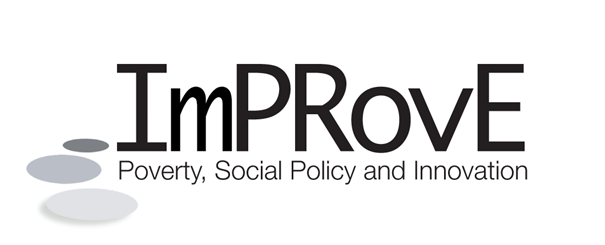Research tentatively points to two principal reasons why marked increases in employment rates in the EU have gone accompanied with stagnant or in some case even rising poverty rates.
- First, job growth has not sufficiently benefited poor people and has not produced commensurate drops in household joblessness (Gregg, Scutella and Wadsworth, 2010; De Graaf-Zijl and Nolan, 2010; Marx, 2007; Kenworthy, 2008; 2011).
- Second, a job does not always pay enough to escape poverty; in-work poverty has become a pan-European phenomenon (Andress and Lohmann, 2008; European Foundation, 2010)
Yet boosting labour participation levels remains to be seen as an important anti-poverty strategy, and it is also one at the heart of the Europe2020 strategy. Against this background, it is essential to gain an in-depth understanding of the link between employment and poverty, including in-work poverty, in different institutional settings and policy regimes.
The principal objective of this work package is to exploit the available statistical as well as institutional data in order to gain an in-depth understanding of past outcomes in EU countries, and to disentangle the impacts of socio-demographic, economic and institutional changes, the latter to comprise labour market institutions, active labour market policies and care support policies. In addition, we will focus on several target groups of particular interest: the less-skilled, migrants, women, young people and non- standard workers. In view of the increasingly precarious position of less-educated workers and their exposure to unemployment and in-work poverty, the work package will also delve deeper into the mechanisms driving educational outcomes, especially as these affect the most vulnerable.
The work to be performed under this work package will benefit from cross-feeding with work to be performed under WP 9. The results should provide direct input for the indicator enhancement phase of the project (particularly activity 3 under WP 12) and the prospective modelling to be performed under WP 15, activity 3.
| Title | ||
|---|---|---|
|
Poster: Employment and Poverty: Delving deeper below the surface |
225 KB | Download |
|
ImPRovE WP 16/04: The tsunamis of educational attainment and part-time employment, and the change of the labour force 1960–2010: what can be learned about self-reinforcing labour-market inequality from the case of the Netherlands, in international compari |
1,003 KB | Download |
|
ImPRovE WP 15/08: Tracking, schools’ entrance requirements and the educational performance of migrant students |
830 KB | Download |
|
ImPRovE WP 15/05: The role of immigration policies for immigrants’ selection and economic success |
582 KB | Download |
|
ImPRovE WP 15/02: Involuntary part-time employment: perspectives from two European labour markets |
694 KB | Download |
|
ImPRovE WP 14/02: Can education bridge the gap? Education and the employment position of immigrants in Belgium |
920 KB | Download |
|
ImPRovE WP 13/14: In-work poverty in times of crisis: do part-timers fare worse? |
1 MB | Download |
|
ImPRovE WP 13/06: The effect of local labour market conditions on educational choices |
803 KB | Download |

